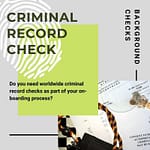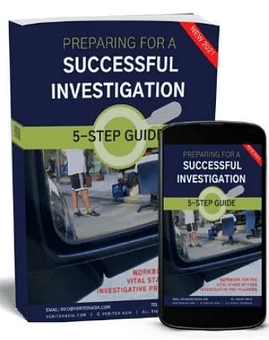
Home » Legal Support » Asset Search


An asset search is useful in many situations during an investigation. These can include but are not limited to:
In our experience, asset searches are best undertaken when there is a good chance that assets could be seized, or recovered, after due legal process. As an example, during a divorce a partner may have hidden assets overseas or assigned them to a third party.
Most asset searches will help uncover information about real estate, business ownership and shareholdings. Often, high value goods—including private forms of transport e.g. yachts, cars and planes—are traceable.
During an asset tracing investigation, additional information about a subject often comes to light. This is likely to be in relation to bankruptcy or litigation. When full case details can be found, useful leads often emerge that can shed more light on a subject’s financial situation and business dealings.
Less frequently, but nevertheless possible, there is a chance that valuable collectibles can be identified. During one case, following intensive social media research, we found a photograph of the subject of the investigation in a privately owned apartment surrounded by works of art. Our researchers are also directed to look out for evidence of any portable valuables including jewellery, stamp/ coin collections and antiques.
A basic asset search can often be turned around within 24-48 hrs. However, more complex cases may last up until two weeks. This is particularly true if the asset search is multi-jurisdictional. High net worth individuals—perhaps anticipating future litigation—may begin to “hive off” assets offshore or spread business risk across multiple countries.
As far as the end client is concerned, even if the asset search is comparatively short, the “attaching” of assets via legal actions can be a drawn-out matter.
Even if not anticipated by client, a high percentage of our asset tracing works ends up being multi-jurisdictional. For instance, a recent case for an Australian lawyer involved asset tracing in UK, USA, Hong Kong and Malaysia as well as Australia.
Locating hidden assets in overseas jurisdictions can be a difficult and time-consuming process, especially when offshore havens such as the British Virgin Islands (BVI) and Western Samoa are involved. Unless the end client has a significant budget, it is difficult to get detailed information about offshore assets.
Initially, much of investigative work is achieved online through both open source and proprietary databases. However, as part of a network of professional investigators with international asset search experience, we can arrange select, overseas operations.
Truly, we would be rich if we had $10 for every time someone has asked us this question.
In short, our company does not look into the finances of companies or individuals that are based in Hong Kong. The reason for this is that in Hong Kong, unless you have designated legal authority— e.g. search warrants or court orders— it is illegal to access bank accounts.
So, whilst our investigators may identify and/ or confirm bank accounts held by a subject, we cannot, by law, access them. The penalties for attempting to do so are now very strict.
Asset searching is never a quick business. In the USA, a divorcee Margaret Spenlinhauer suspected that her spouse was under-representing his true wealth. Initially, she was awarded an amount of $750,000.
After dedicating the next 15 years to tracing the hidden assets, she was finally rewarded with a massive USD$15 Million payout.

Veriton Investigations was co-founded in 2014 by an ex-Hong Kong police officer and a research/ communications professional. They recognized a need in the private investigator industry to combine high quality reporting and analysis with discreet, feet-on-the-ground investigations and surveillance.
Veriton Investigations is a brand of the Veriton Asia Group. We offer a comprehensive portfolio of research and investigations services from full reputational due diligence and surveillance to China company checks, executive screening and process serves.
Get the Veriton newsletter for updates and special offers available ONLY to our subscribers.
Get the Veriton newsletter for updates and special offers available ONLY to our subscribers.
| Cookie | Duration | Description |
|---|---|---|
| cookielawinfo-checkbox-analytics | 11 months | This cookie is set by GDPR Cookie Consent plugin. The cookie is used to store the user consent for the cookies in the category "Analytics". |
| cookielawinfo-checkbox-functional | 11 months | The cookie is set by GDPR cookie consent to record the user consent for the cookies in the category "Functional". |
| cookielawinfo-checkbox-necessary | 11 months | This cookie is set by GDPR Cookie Consent plugin. The cookies is used to store the user consent for the cookies in the category "Necessary". |
| cookielawinfo-checkbox-others | 11 months | This cookie is set by GDPR Cookie Consent plugin. The cookie is used to store the user consent for the cookies in the category "Other. |
| cookielawinfo-checkbox-performance | 11 months | This cookie is set by GDPR Cookie Consent plugin. The cookie is used to store the user consent for the cookies in the category "Performance". |
| viewed_cookie_policy | 11 months | The cookie is set by the GDPR Cookie Consent plugin and is used to store whether or not user has consented to the use of cookies. It does not store any personal data. |

Avoid losing time and money with your next research or investigations project!
Why not sign up for our occasional newsletter to get your free eBook? Contains useful advice with guidelines to help you get ready for an investigation.